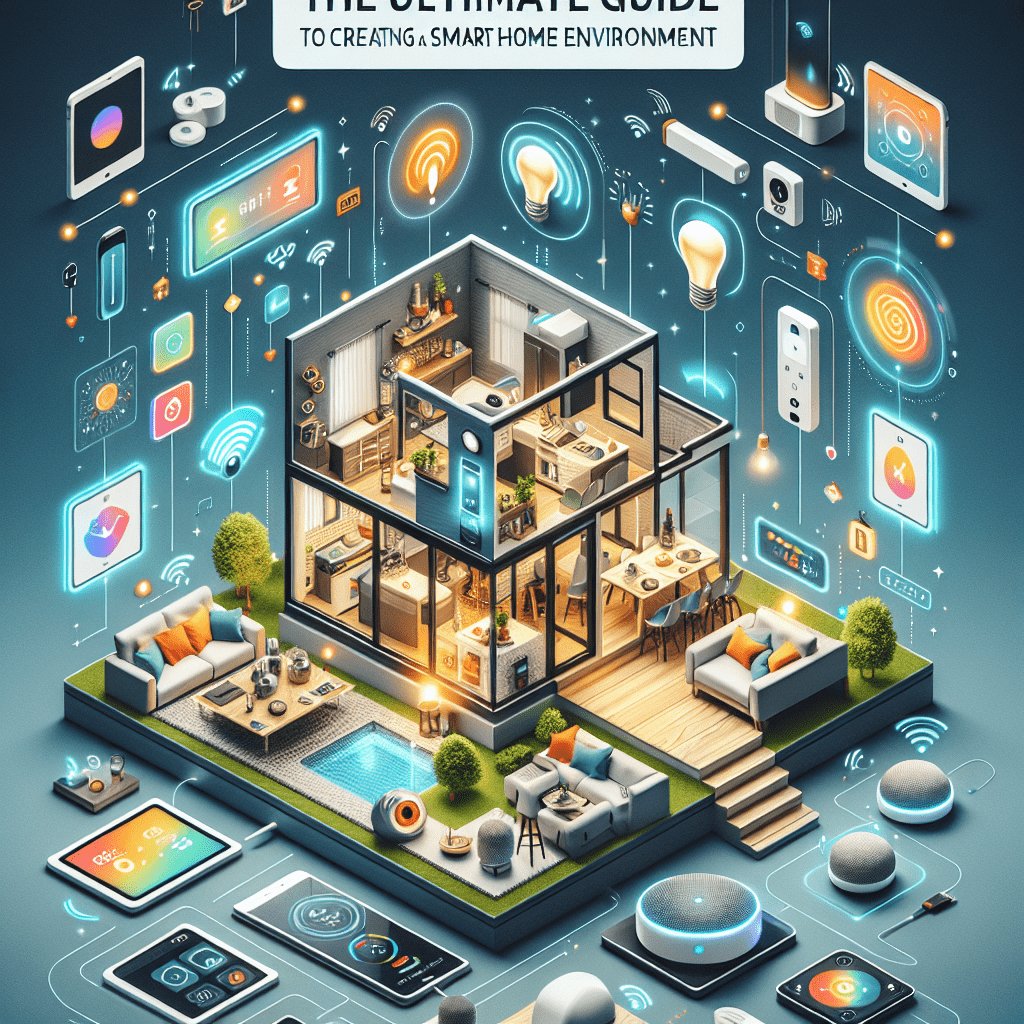In today’s digital age, turning your home into a smart environment has never been easier. With the advancement of technology, smart home devices can help you automate and control various aspects of your home, from lighting and temperature to security and entertainment. In this comprehensive guide, we will explore all you need to know about creating a smart home environment.
What is a Smart Home?
A smart home refers to a residence that uses internet-connected devices to enable the remote monitoring and management of appliances and systems, such as lighting, heating, and security. These devices can be controlled remotely via a smartphone, tablet, or computer, providing convenience, energy efficiency, and security benefits.
Benefits of a Smart Home Environment
There are numerous benefits to creating a smart home environment, including:
- Convenience: Control your home devices from anywhere with just a tap on your smartphone.
- Energy efficiency: Monitor and optimize your energy usage, saving money on utility bills.
- Security: Receive real-time alerts and monitor your home’s security cameras remotely.
- Comfort: Set up automated routines for lighting, temperature, and other systems to suit your preferences.
- Entertainment: Stream music, movies, and TV shows seamlessly throughout your home.
Getting Started with Smart Home Devices
Before you begin creating a smart home environment, it’s essential to choose the right devices that suit your needs and preferences. Here are some popular smart home devices to consider:
- Smart thermostats: Control your home’s heating and cooling systems remotely.
- Smart lighting: Adjust the brightness and color of your lights with voice commands or an app.
- Smart security cameras: Monitor your home’s security with real-time video footage and alerts.
- Smart speakers: Use voice assistants to play music, get weather updates, and control other devices.
- Smart plugs: Turn any appliance into a smart device by connecting it to a smart plug for remote control.
Setting Up Your Smart Home Environment
Once you’ve chosen your smart home devices, it’s time to set them up and integrate them into your home environment. Here are some steps to follow:
- Install the smart devices according to the manufacturer’s instructions.
- Download and install the corresponding apps on your smartphone or tablet.
- Connect the devices to your home’s Wi-Fi network.
- Set up automation routines and schedules for your devices to operate seamlessly.
- Enjoy the convenience and benefits of your new smart home environment.
Conclusion
Creating a smart home environment offers a plethora of benefits, from convenience and energy efficiency to security and entertainment. By choosing the right smart devices and setting them up correctly, you can transform your home into a modern, connected space that enhances your lifestyle. Embrace the future of home automation and enjoy the endless possibilities of a smart home environment.
FAQs
Q: Are smart home devices secure?
A: Most smart home devices come with robust security features to protect your data and privacy. It’s essential to keep the devices updated with the latest firmware and use strong passwords to prevent unauthorized access.
Q: Can I control smart home devices when I’m away from home?
A: Yes, most smart home devices can be controlled remotely via a smartphone app or web interface, as long as they are connected to the internet.
Q: Do smart home devices require special installation?
A: While some smart devices may require professional installation, many devices can be easily set up by following the manufacturer’s instructions. No special technical skills are usually needed.
TIP:
Consider using a smart home hub to centralize the control of all your smart devices and create custom automation rules for seamless integration. A smart home hub can simplify the management of your smart home environment and enhance the overall experience.
#Ultimate #Guide #Creating #Smart #Home #Environment

